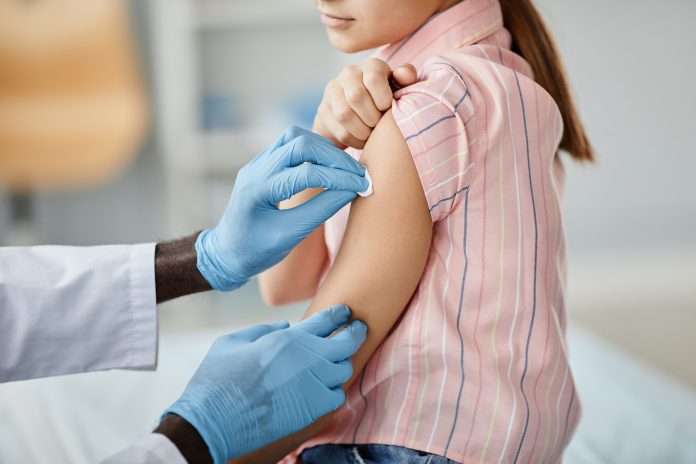The recent rise in RSV cases in Connecticut has led to a noticeable increase in moderate infections across the population.
RSV, short for Respiratory Syncytial Virus, is a significant respiratory virus that targets the lungs and breathing passages. As per the Centers for Disease Control and Prevention (CDC), this virus is now a growing concern, especially for children. Healthcare professionals and pediatricians are particularly alarmed due to a “severe shortage” of vaccines that are crucial for protecting the younger population from this infection.
Below is an interview with Dr. Sarah Crawford, professor of biology. Crawford has been studying cancer cells and their characteristics in her lab at Southern for decades. Additionally, she has a personal interest in wellness, nutrition, and cancer prevention.
What does the RSV infection rate look like for the upcoming winter months? Are certain individuals more vulnerable than others?
Right now, RSV is surging. We have about 1,000 cases every day, and several deaths. It certainly is not anywhere near what we would see with COVID, and most cases are mild. There are two groups, however, that are at increased risk: the very young and adults aged 60 and older.
Very young children have a tiny respiratory tract. When the virus gets into the bronchial tubules, it’s very close to the lung. You can get a lot of inflammation there that can be dangerous, and their immune systems are not very well developed. When you get to the at-risk adult group, they may be more vulnerable to COPD or other types of lung infections, and lowered immunity due to other infections or diseases. Because RSV has been circulating at a higher level than we have seen over the past few years, we really must be vigilant.
What vaccines are available for RSV prevention?
There are two classical vaccines and one prophylactic available to help prevent RSV. At-risk adults are most often prescribed the Arexvy vaccine, which is a traditional vaccine made from the fusion protein (just protein, no messenger RNA) of the RSV that is highly immunogenic. When you target that protein, it helps block the virus from invading the lung tissue. It differs from COVID vaccines in that it’s been tested in a research clinical trial on several hundred thousand people, and has shown very good clinical efficacy – about a 75 percent protection against severe disease with RSV and pneumonia. This vaccine seems to be well tolerated, with typical soreness of the arm, and occasionally a fever. We haven’t seen anything very serious. And while we don’t precisely know how long the immunity lasts just yet, common guidance is six to eight months.
Abrysvo is also a fusion protein vaccine targeted to women in late pregnancy (delivering within 6 to 8 weeks). It’s been tested in several thousand women, which isn’t a terribly large clinical trial, but it has shown consistency in producing antibodies against the virus that travels across the placenta. These antibodies will protect the newborn for the first several months of life, maybe even up to five or six months, which would be the time when contracting RSV would be most serious. This is something that should be discussed and considered in collaboration with one’s OB-GYN. And just as a precaution, it’s only given to women close to the time of delivery so that if there were preterm labor, the vaccine would not pose a risk.
The third form of protection is not a vaccine, it’s a prophylactic – a monoclonal antibody to the fusion protein of the same target. It creates passive immunity and is not going to activate the immune system at all. So, you can give this prophylactic to your newborn or infant up to the age of about 8 months. If an infection occurs, the monoclonal antibodies will go after the virus and prevent it from attacking the cells of the respiratory tract. This is new as well and is short-term.
Do infants and adults receive different vaccines? And how are they different than other vaccines?
These treatments are not the same, and some people are not aware of that. The vaccine designed for infants is not a vaccine that’s going to upset the immune system in any way. It’s just a passive protein that should prevent the virus or at least minimize the ability of the virus to cause infection. It won’t interfere with immune system development.
Adult vaccinations for RSV are not mRNA vaccines, as some of the COVID options were. This is a traditional protein vaccine, which is not expected to have some of the side effects that we’ve seen with the mRNA vaccines.
What is the availability of these vaccines in Connecticut currently?
The low availability of these vaccines in our state has been a cause of concern for U.S. Senator Richard Blumenthal, and he is working to make Congress more aware of this situation. If the vaccine were approved we would have greater supply and accessibility for anyone concerned.
Should we be concerned in the U.S. about the outbreak of early childhood lung infections in China?
Over the last month or so there has been quite an outbreak of early childhood lung infections like pneumonia in Northern China, particularly in Beijing – much higher than the normal rates they see. Based on the information China has provided, there are several causes: your traditional flu, RSV, and potentially the microplasma pneumonia, which we don’t hear about that much. It seems to be spreading in China, due perhaps to an immunity gap after being in lockdown for so many years. When quarantine was finally relaxed, the floodgates were opened. It’s also been suggested the high incidence of microplasma in young children in China may be due to vitamin A deficiency. So, in areas of the world where vitamin A is not that plentiful, children may be at higher risk. In the United States, we don’t seem to have that problem.



